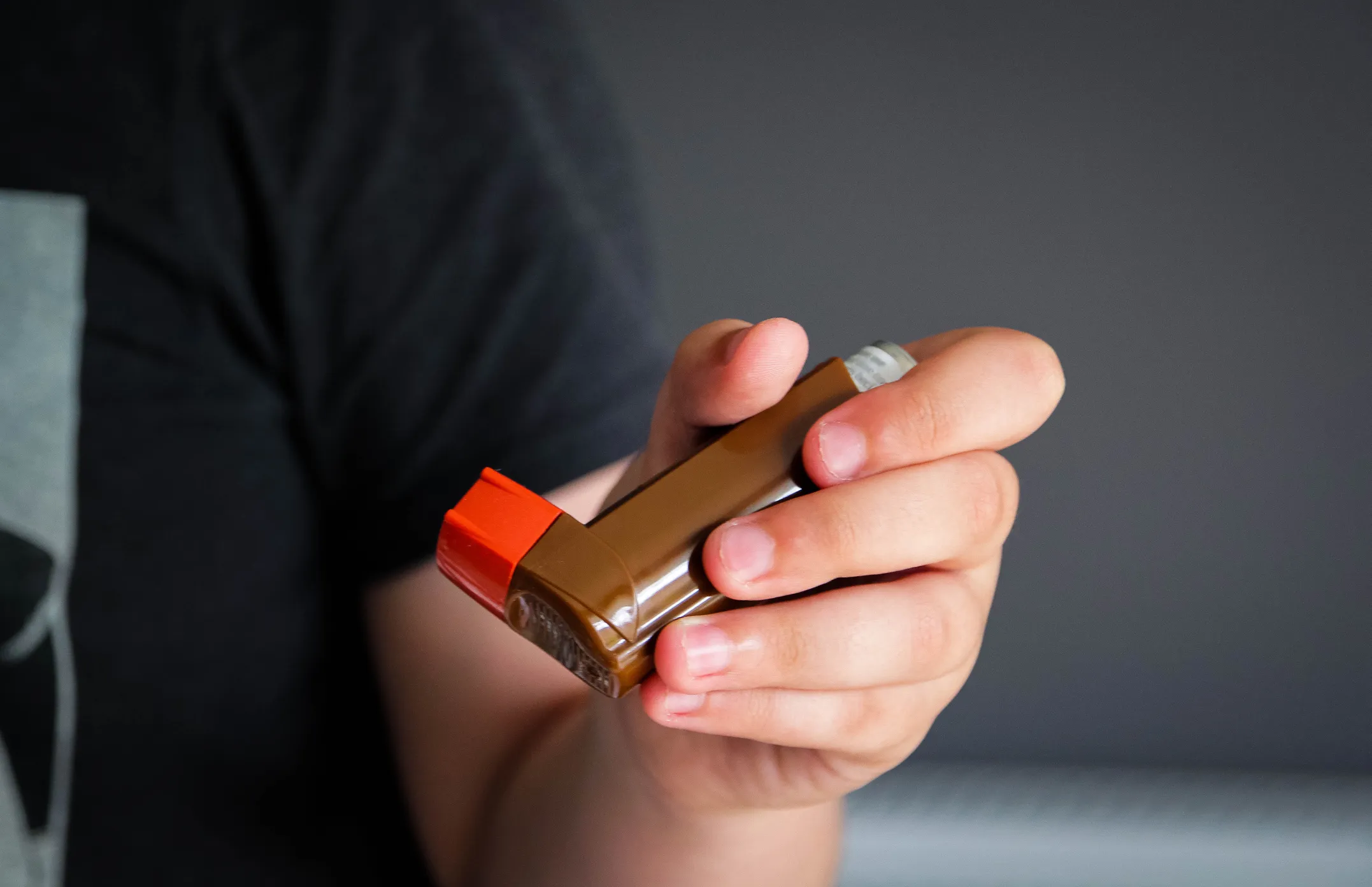
Experts advise that 5 to 17 year olds with poorly controlled asthma should be considered for vaccination to reduce the risk of infection and the spread of Covid-19 in schools and households.
Researchers say that considering the risks, some 9,000 children with poorly controlled asthma in Scotland could benefit from being vaccinated – and more than 109,000 children could benefit across the UK.
Asthma control
Some 1.1 million children in the UK are estimated to have asthma. Poorly controlled asthma was defined in this study as prior hospitalisation for asthma or being prescribed at least two courses of oral steroids in the previous two years.
The findings also highlight the importance of careful monitoring of children with poorly controlled asthma if they become infected with Covid-19, the experts say.
National dataset
The research team from Universities of Edinburgh, Aberdeen, Glasgow, Strathclyde and St Andrews and Public Health Scotland analysed a dataset as part of the EAVE II project, which uses anonymised linked patient data to track the pandemic and covers 99 per cent of the Scottish population.
Using the Scotland-wide EAVE II Covid-19 surveillance platform, around 750,000 de-identified health records for 5 to 17 year olds across Scotland were analysed, which included 63,463 children diagnosed with asthma.
Among children with asthma, there were 4,339 confirmed cases of Covid-19 between 1 March 2020 and 27 July 2021. Of these, 67 children were admitted to hospital.
Among children without asthma, there were 40,231 confirmed cases of Covid-19, of whom 382 were admitted to hospitals.
Steroids and hospitalisation
Using two or more recent courses of oral steroids as the marker of poorly controlled asthma, 255 per 100,000 of children with poorly controlled asthma had Covid-19 hospitalisation compared to 54 per 100,000 of children without asthma and 91 per 100,000 of children with well controlled asthma.
Among children with asthma, 548 per 100,000 of children who had been in hospital for asthma in the previous two years were hospitalised with Covid-19 compared with 94 per 100,000 who were not hospitalised for asthma in the previous two years.
Asthma is one of the commonest chronic disorders affecting children in the UK. Our national analysis has found that children with poorly controlled asthma are at much higher risk of Covid-19 hospitalisation. Children with poorly controlled asthma should therefore be considered a priority for Covid-19 vaccination alongside other high-risk children.
Professor Aziz Sheikh
Director of the University of Edinburgh’s Usher Institute and EAVE II study lead
The study is a result of the UK’s Joint Committee on Vaccination and Immunisation request to use EAVE II to investigate the risk of hospitalisation in school-aged children with poorly controlled asthma.
The results are published in The Lancet Respiratory Medicine.
As with any medical intervention, it is important to consider both the risks and benefits from vaccinations. Emerging evidence from children aged 5 and older suggests that Covid-19 vaccines are overall well-tolerated by the vast majority of children. It is now for policymakers to decide how to act on these data. These data also underscore the importance of maintaining good asthma control in children, particularly during the pandemic.
Professor Aziz Sheikh
Director of the University of Edinburgh’s Usher Institute and EAVE II study lead
COVID-19 can be a severe disease among children and this study has provided additional insight into which conditions can put some young individuals more at-risk. We hope the findings can assist the JCVI with its efforts to identify those who should be eligible for the vaccine and further extend the offer of protection to those most vulnerable to the virus.
Professor Chris Robertson
Public Health Scotland and University of Strathclyde
The study was funded by the Medical Research Council, UK Research and Innovation Industrial Strategy Challenge Fund, the National Institute for Health Research and Health Data Research UK (HDR UK), and was supported by the Scottish Government.
Additional support was provided through the Scottish Government Director-General Health and Social Care, and the UKRI COVID-19 National Core Studies Data and Connectivity programme led by HDR UK.

